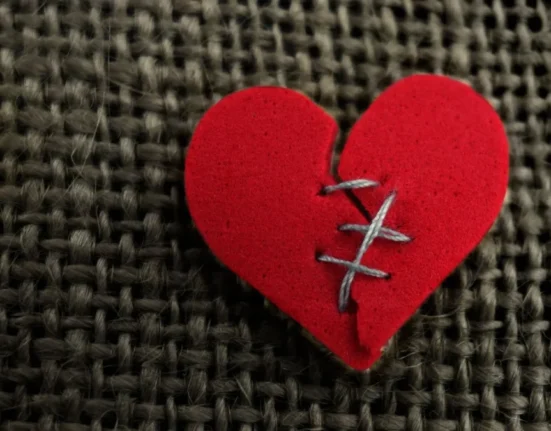Last Updated on April 29, 2025 by Rachel Hall
- Relationship Experts Reveal the Worst Sex Advice They Have Ever Heard: 7 Shocking Tips That Experts Say Ruin Relationships and Intimacy
- Why Bad Sex Advice Can Ruin a Relationship
- 7 Worst Sex Tips Experts Wish Would Disappear
- Red Flags: How to Spot Toxic Sex Advice
- Real, Expert-Approved Sex Tips to Build Trust and Connection
- Conclusion: Ditch the Myths, Embrace the Facts
Relationship Experts Reveal the Worst Sex Advice They Have Ever Heard: 7 Shocking Tips That Experts Say Ruin Relationships and Intimacy
When it comes to sex advice, we’ve all heard some questionable tips. From magazine columns to TikTok snippets, the internet is flooded with “expert” opinions—many of which are not only misguided but downright harmful. In this article, we’ll reveal the worst sex advice ever given, according to professionals. Drawing on guidance from therapists, relationship coaches, and sexual wellness educators, we aim to offer practical, trustworthy insights to help you improve your relationship, deepen intimacy with your partner, and avoid emotional and physical pitfalls.
Let’s break down the sex advice they have ever heard—and what real experts say you should be doing instead.
Why Bad Sex Advice Can Ruin a Relationship
Misinformation about sex can derail even the strongest dating and relationship dynamics. Poor guidance can cause confusion, dissatisfaction, and unrealistic expectations in bed. Over time, it creates emotional distance, and in some cases, can even drive one partner to cheat in search of fulfilment.
Relationship experts reveal that the worst tips often focus on performance rather than connection. They ignore communication, mutual consent, and emotional safety—all critical elements in any lifestyle that values intimacy.
The Daily Mail Online, among other outlets, often publishes viral sex content. While some of it can be light-hearted or educational, even the Daily Mail has been criticised for contributing to toxic narratives. As we explore the worst sex advice ever given, it’s crucial to question the source and context of what we consume.
7 Worst Sex Tips Experts Wish Would Disappear
1. “Just Fake It to Protect Your Partner’s Ego”
One of the most damaging myths is the idea that faking orgasms is an act of kindness. This bad advice is particularly problematic in heterosexual relationships where women are more frequently socialised to prioritise their feelings over their pleasure.
According to therapist and counsellor Alyson Curtis, this practice “betrays emotional intimacy” and reinforces a cycle of sexual dissatisfaction. Your partner can’t improve if they don’t know something’s wrong. Faking pleasure trains both people in the relationship to accept less than they deserve.
2. “Avoid Talking About Kinks—They’re Weird”
Suppressing your desires doesn’t make you normal—it makes you silently frustrated. Many people fear discussing “taboo” interests out of embarrassment or fear of judgment, especially from a boyfriend or new partner.
Sexologist Paul Aaron Travis says that “kinks, when explored consensually, can deepen trust and satisfaction.” Labelling desires as abnormal is outdated, inaccurate, and ultimately toxic. Discussing boundaries and curiosities makes sex safer, not stranger.
3. “If You Don’t Orgasm, It Wasn’t Real Sex”
This is one of the most persistent and harmful myths in sexual education. It equates value and success with climax, ignoring the importance of sensuality, exploration, and emotional touch.
As experts reveal the worst sex guidance, this one consistently ranks high. An orgasm is not the benchmark of a good sexual experience. Emotional connection, mutual responsiveness, and pleasure throughout the process matter far more.
4. “Sexy Jealousy Keeps the Spark Alive”
Some advice columns encourage readers to flirt with others or make their partner jealous to keep things “spicy.” This is manipulative and breeds insecurity. It’s not flirty, it’s immature.
Instead of improving your dating and relationship life, these tactics erode trust and spark defensive behaviour. Experts warn that this is often a red flag of deeper communication issues.
5. “Penis Size Equals Satisfaction”
Nothing illustrates the need to reveal the worst sex advice more than the obsession with the penis. This myth damages male self-esteem and completely overlooks the complexity of arousal and satisfaction—especially for people with vaginas.
True satisfaction has more to do with attention, creativity, emotional presence, and mutual care than any body part. When size becomes the focal point, nuance and connection get lost.
6. “Real Men Always Want Sex, and Women Rarely Do”
This outdated stereotype contributes to unhealthy dynamics in many couples. It suggests that libido is biologically fixed and that sexual rejection is either abnormal or insulting.
In reality, libido fluctuates. Hormones, stress, past trauma, and relational health all play a role. Generalising libido by gender only silences open conversations and leads to unnecessary trouble.
7. “You Shouldn’t Need Help from a Therapist”
Many people resist seeing a therapist or sex educator out of shame or pride. This is especially common in cultures that view therapy as a last resort. But ignoring professional help only prolongs dissatisfaction.
Like any other profession, sex therapy relies on research, training, and ethics. A skilled expert can transform not only your sex life, but also your ability to communicate and trust your partner.
Red Flags: How to Spot Toxic Sex Advice
Here are some warning signs that you’re consuming bad advice:
- It centres male satisfaction or the penis as the primary goal.
- It encourages manipulation, silence, or dishonesty.
- It treats cheating as inevitable or understandable.
- It assumes all people experience sex the same way.
- It discourages therapy or asking for help.
These patterns aren’t just misleading—they’re toxic. Whether in a blog post, a TikTok video, or a Daily Mail column, pay attention to whether the advice fosters connection or control.
Real, Expert-Approved Sex Tips to Build Trust and Connection
Instead of relying on gimmicky tricks or stereotypes, real sex tips involve:
- Talking about fantasies, fears, and boundaries with your partner.
- Being present in the moment rather than focused on performance.
- Using touch, eye contact, and breath to enhance intimacy.
- Checking in regularly about satisfaction and comfort.
- Validating your own needs as equally important as your boyfriend’s.
Good sex advice is inclusive, respectful, and focused on emotional safety. It prioritises authenticity over performance and collaboration over coercion.
Conclusion: Ditch the Myths, Embrace the Facts
As we’ve seen, the worst sex advice often disguises itself as confidence or fun. But the best intimacy grows from knowledge, respect, and openness. When we reveal the worst sex advice, we reclaim our agency and make space for truth, vulnerability, and genuine pleasure.
So, next time you stumble across a sexy “tip” in a Daily Mail Online roundup or a viral listicle, remember: if it sounds like it’s more about appearances than connection, it’s probably worth ignoring.
Real intimacy isn’t just about being sexy—it’s about being seen, heard, and accepted. And that, above all else, is what makes a great sex life.

Rachel Hall, M.A., completed her education in English at the University of Pennsylvania and received her master’s degree in family therapy from Northern Washington University. She has been actively involved in the treatment of anxiety disorders, depression, OCD, and coping with life changes and traumatic events for both families and individual clients for over a decade. Her areas of expertise include narrative therapy, cognitive behavioral therapy, and therapy for traumatic cases. In addition, Rachel conducts workshops focusing on the psychology of positive thinking and coping skills for both parents and teens. She has also authored numerous articles on the topics of mental health, stress, family dynamics and parenting.








Leave feedback about this